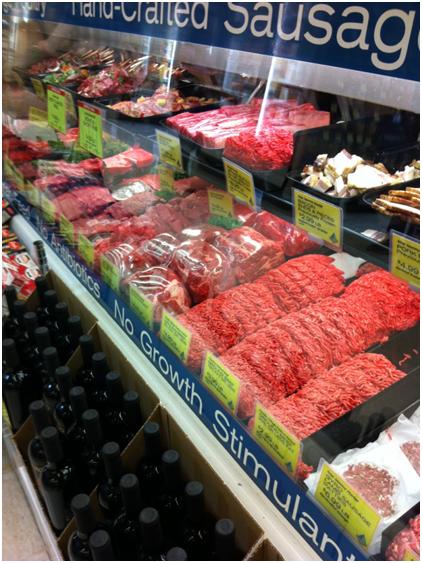Meat is one area where you want to pay close attention to how and where the animal was raised. Always look for organic fed animals. Genetically modified plants are often used in animal feed, which means that even if you avoid it in the produce isle you may be eating it in the end through your meat. Local meat is often healthier, as it has not had to travel as far or been exposed to preservative methods. Here are some tips in selecting meat from your local market.
- One pound of boneless lean meat should yield about four 3oz servings when cooked.
- Grass fed, organic beef is a healthier option. Try to limit beef to once a month.
- Injecting buffalo with hormones is not permitted. If you want to be sure your red meat is hormone free, buffalo is good choice.
- Poultry sausage and ground turkey often have less fat. If skin has been included, the fat content will be higher.
- Frozen ground turkey is usually less expensive than fresh. Defrost only when you are ready to eat. If you have not utilized the defrosted meat within 3 days it will need to be discarded.
- Precooked poultry can be used in dishes calling for cooked meat and can cut down on meal preparation time.
- Venison, buffalo, bison, and goat meat have less fat than meat from most other animals.
- Higher fat meats include pork spareribs, ground pork, most sausages, and bacon.
- The term “natural” does not indicate organic. Products with the title natural have not undergone any FDA inspection with regards to this claim and they are not held to the same standard that organic products are.

